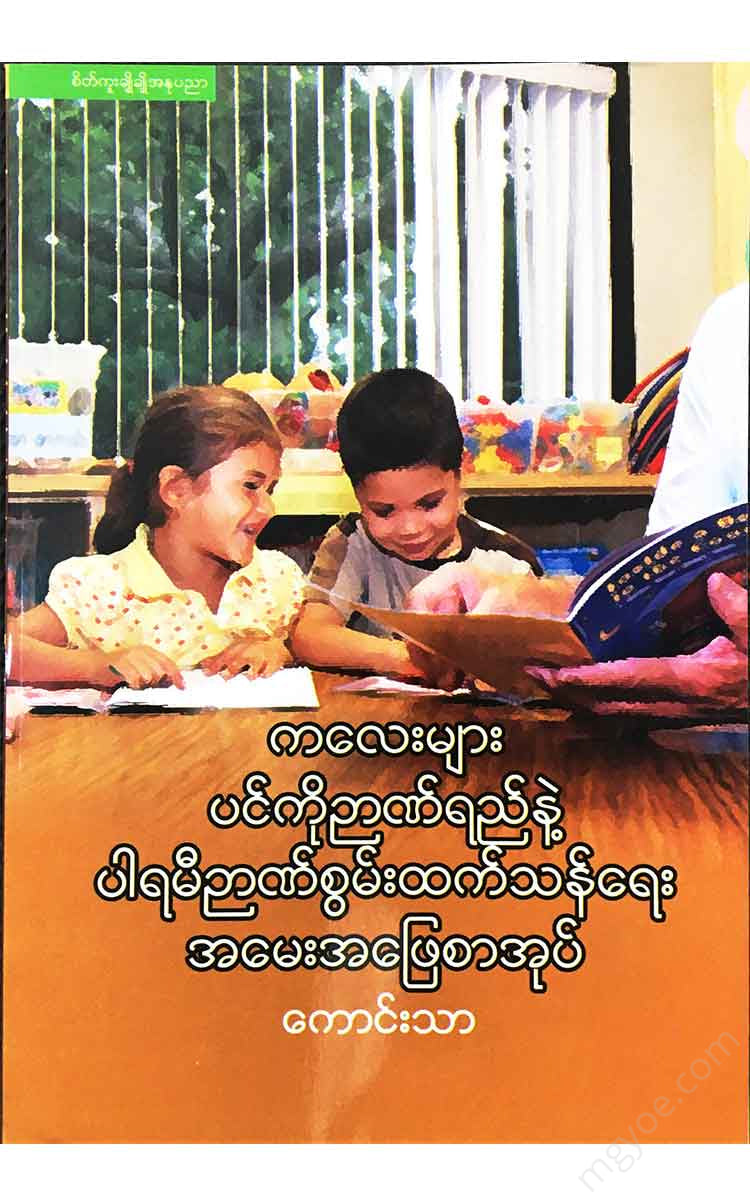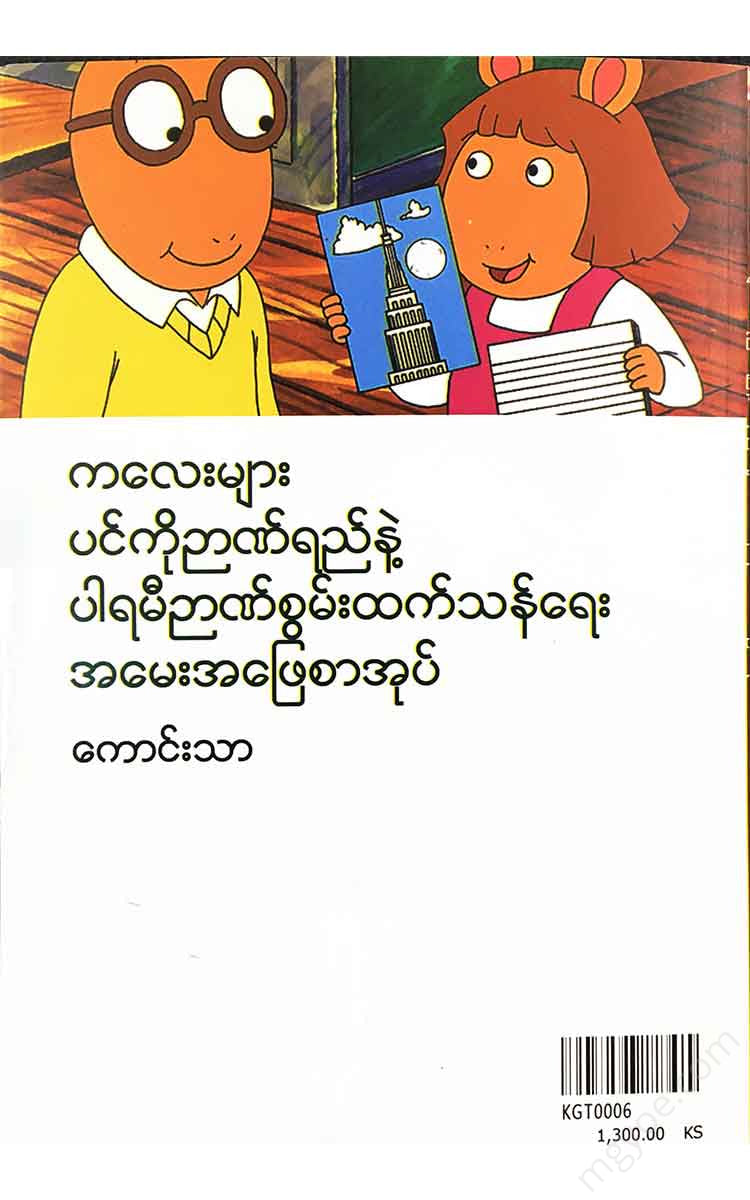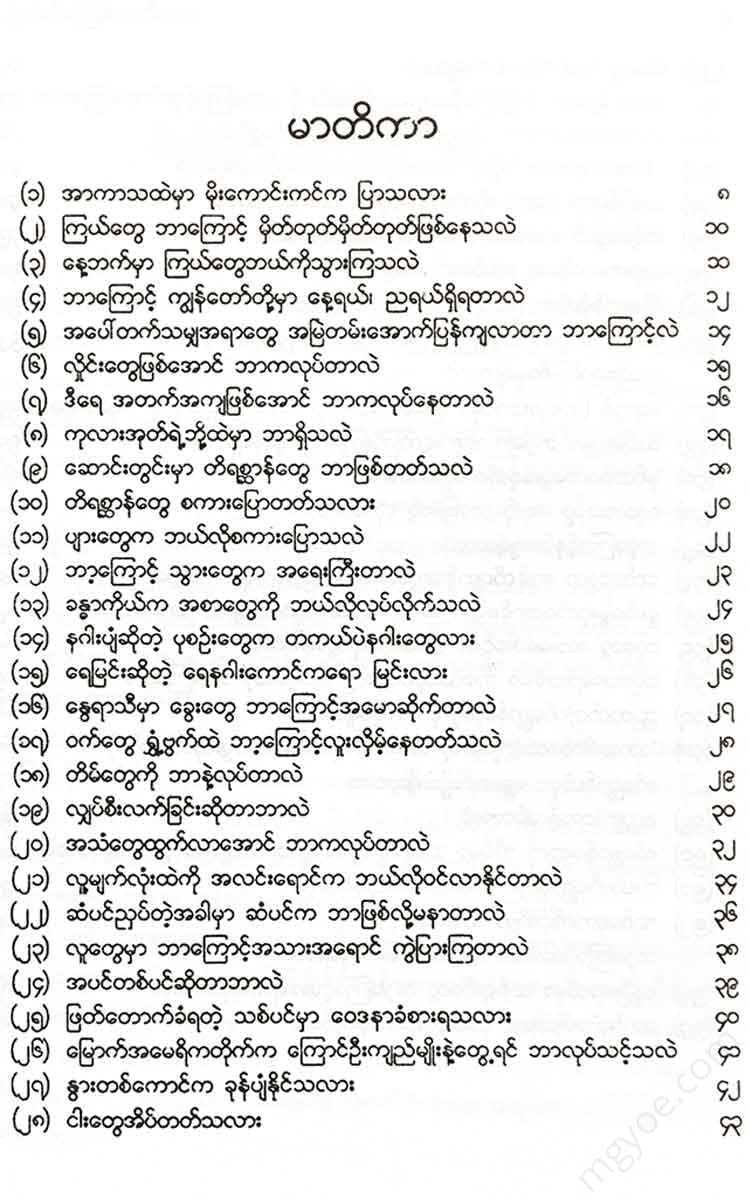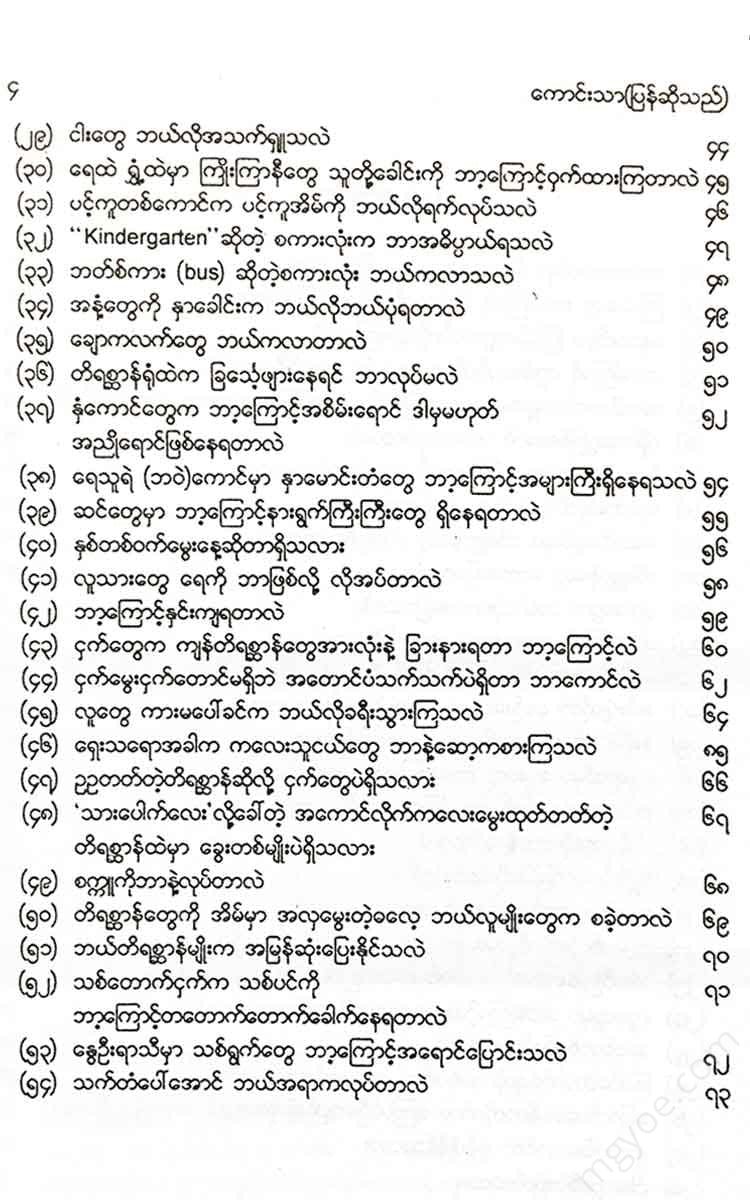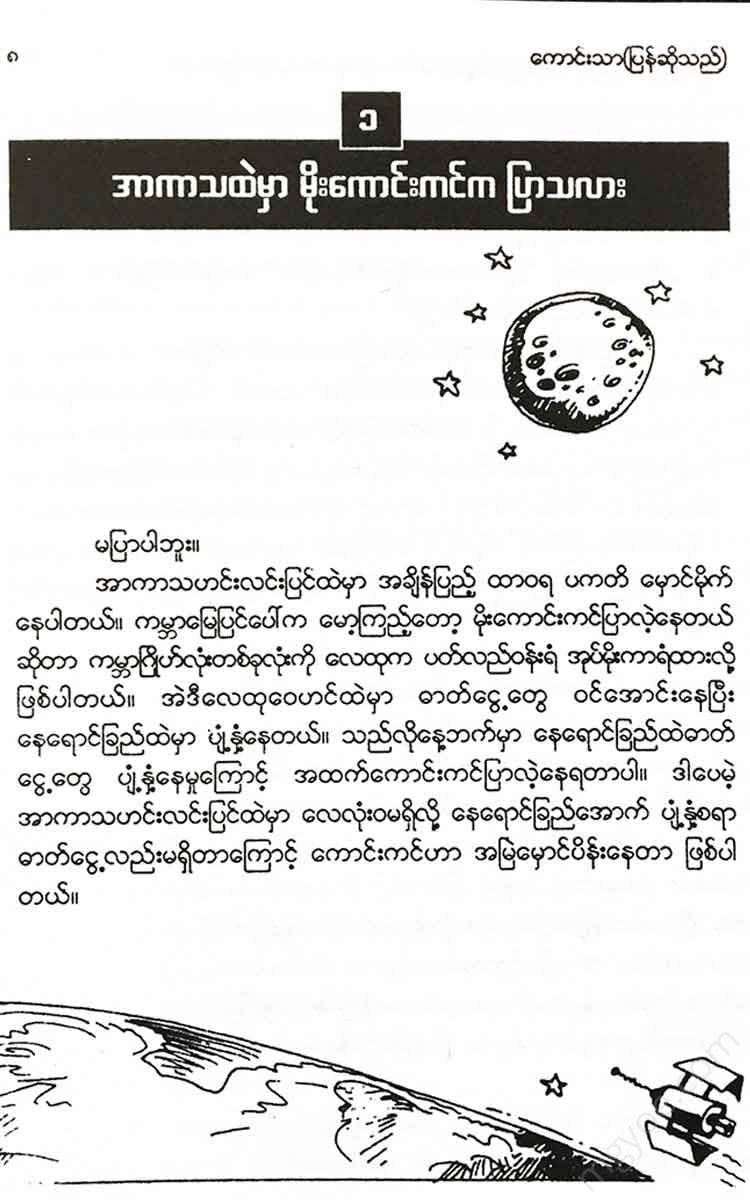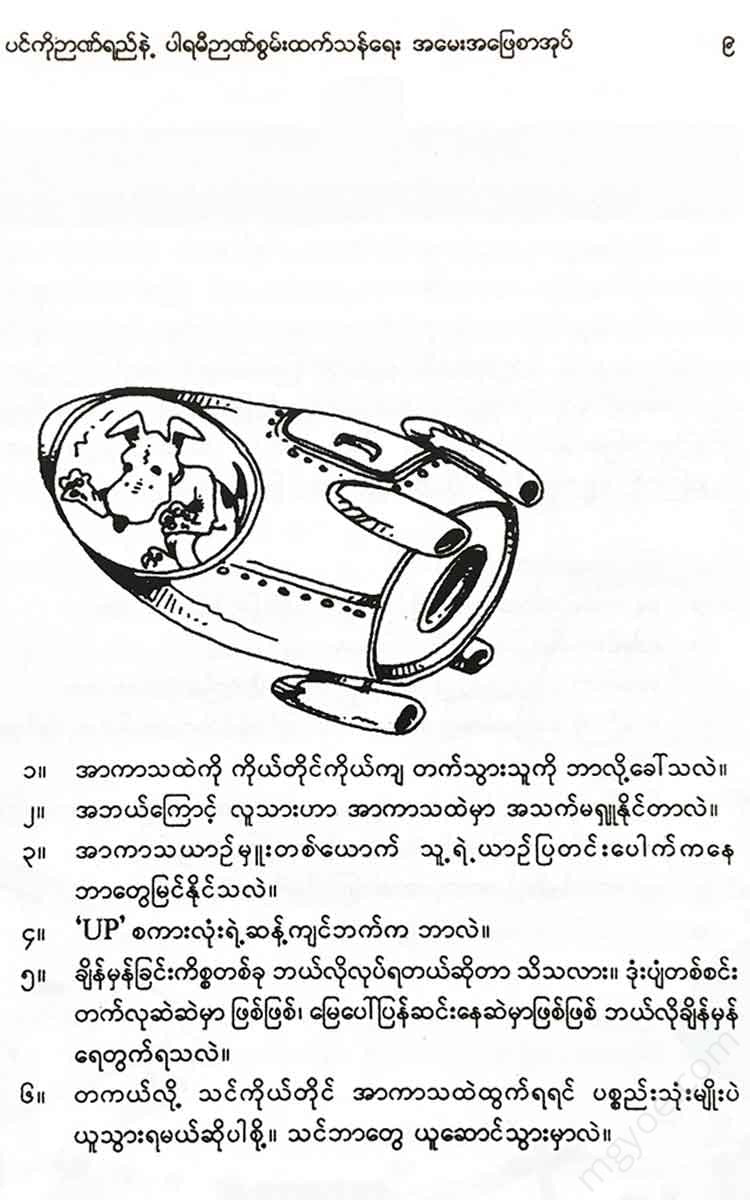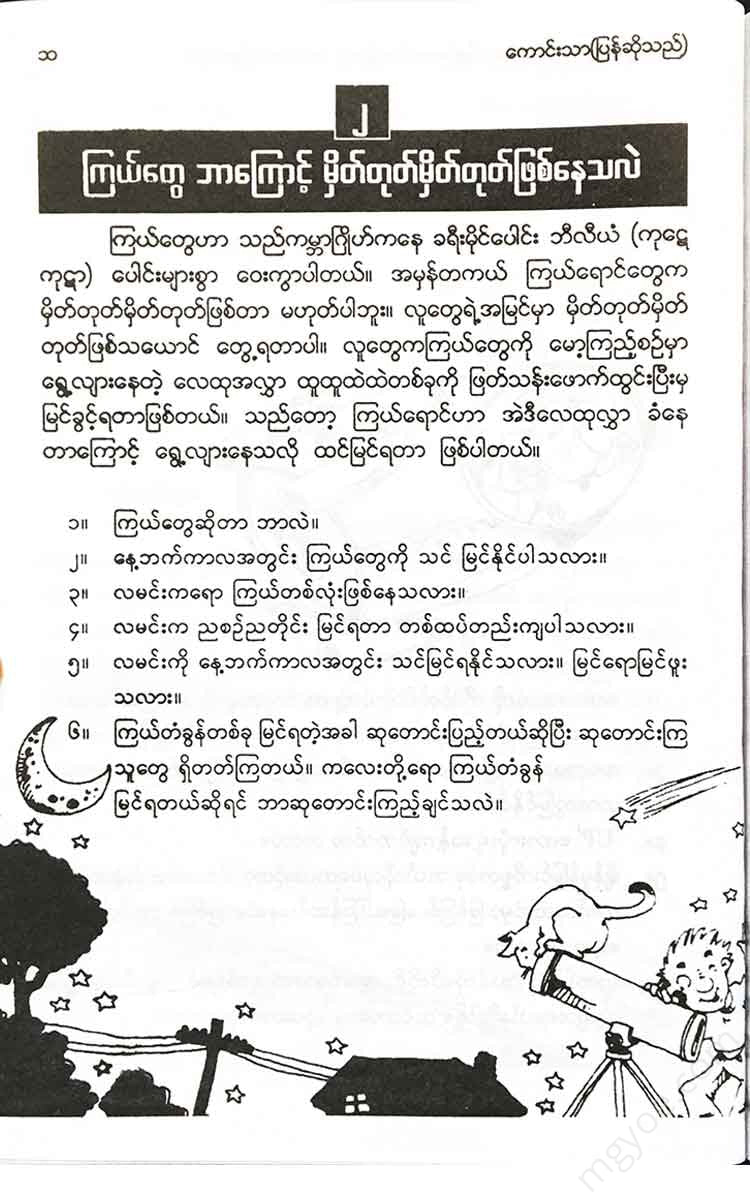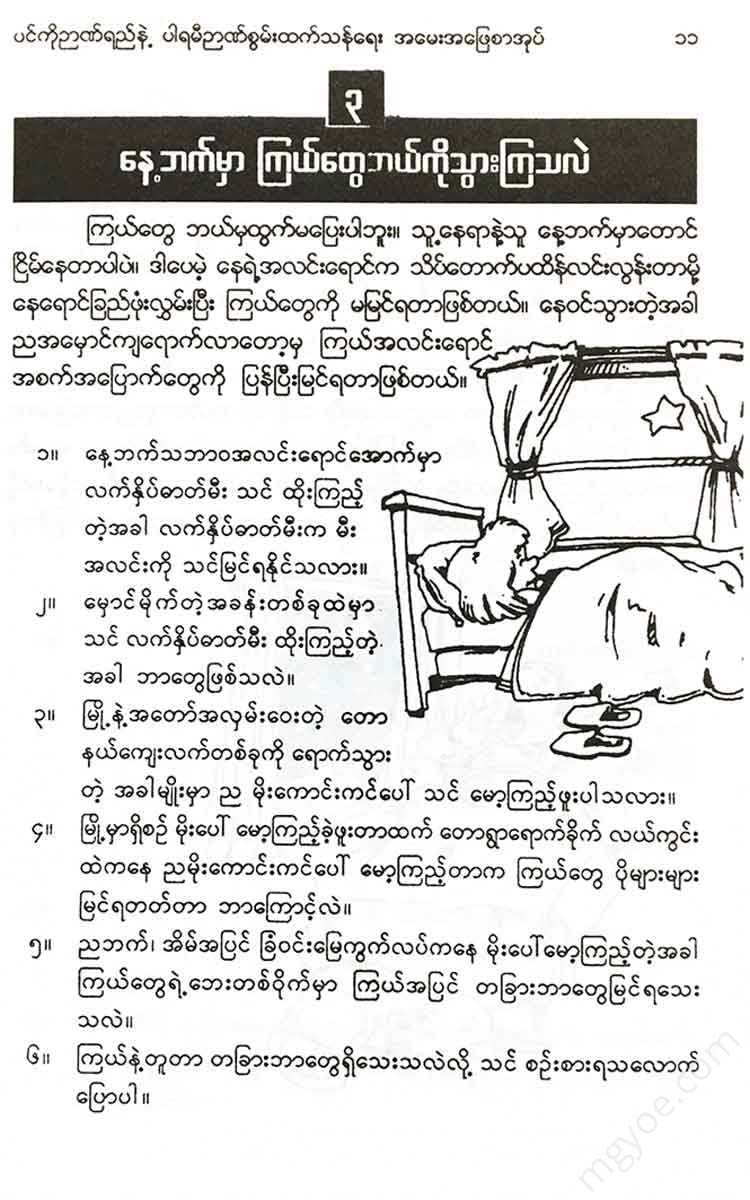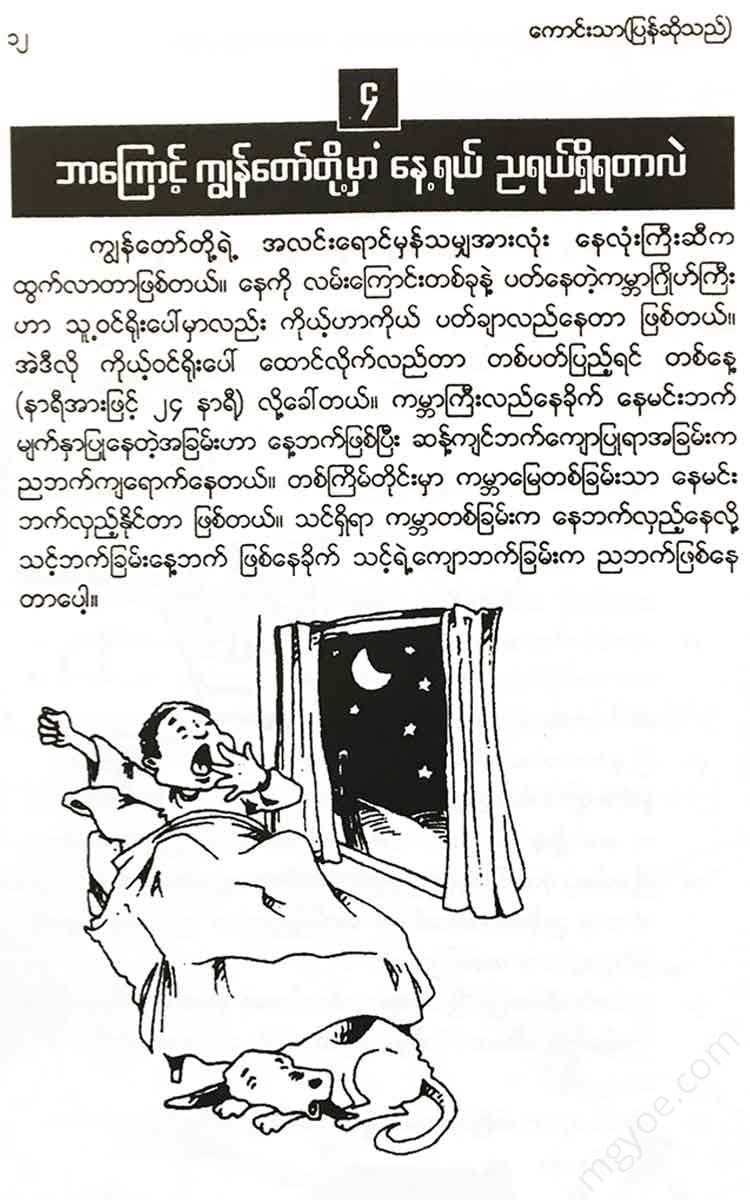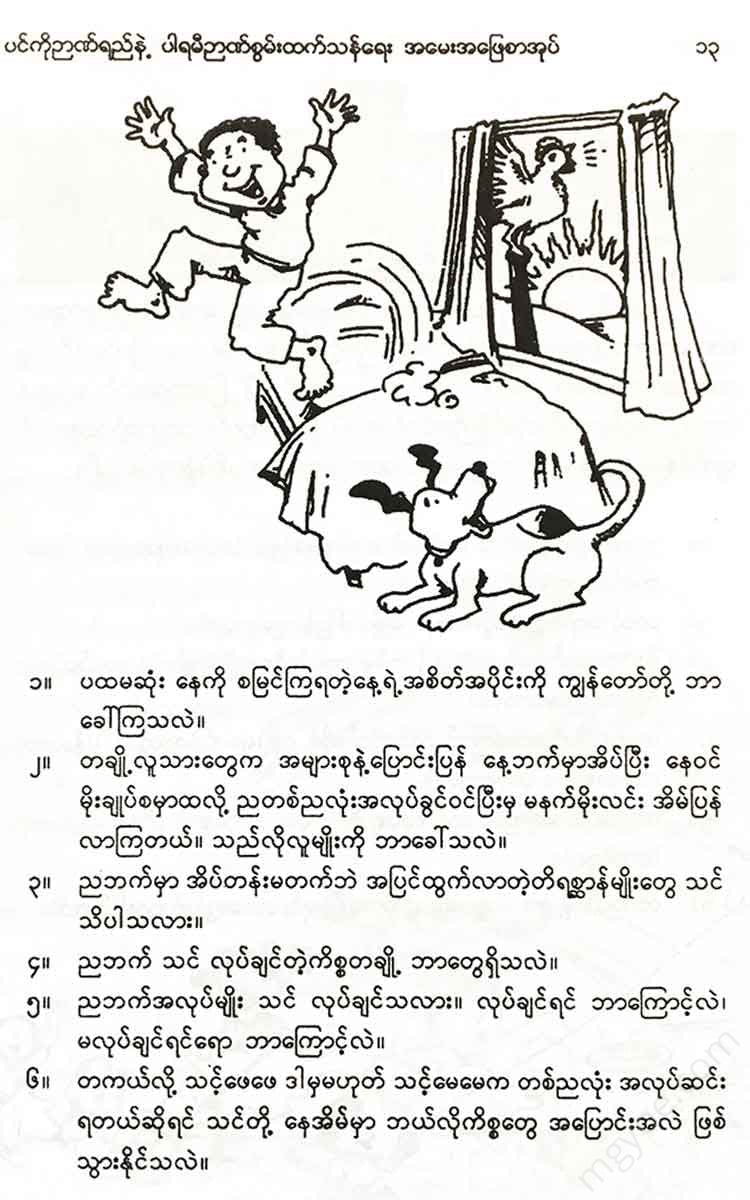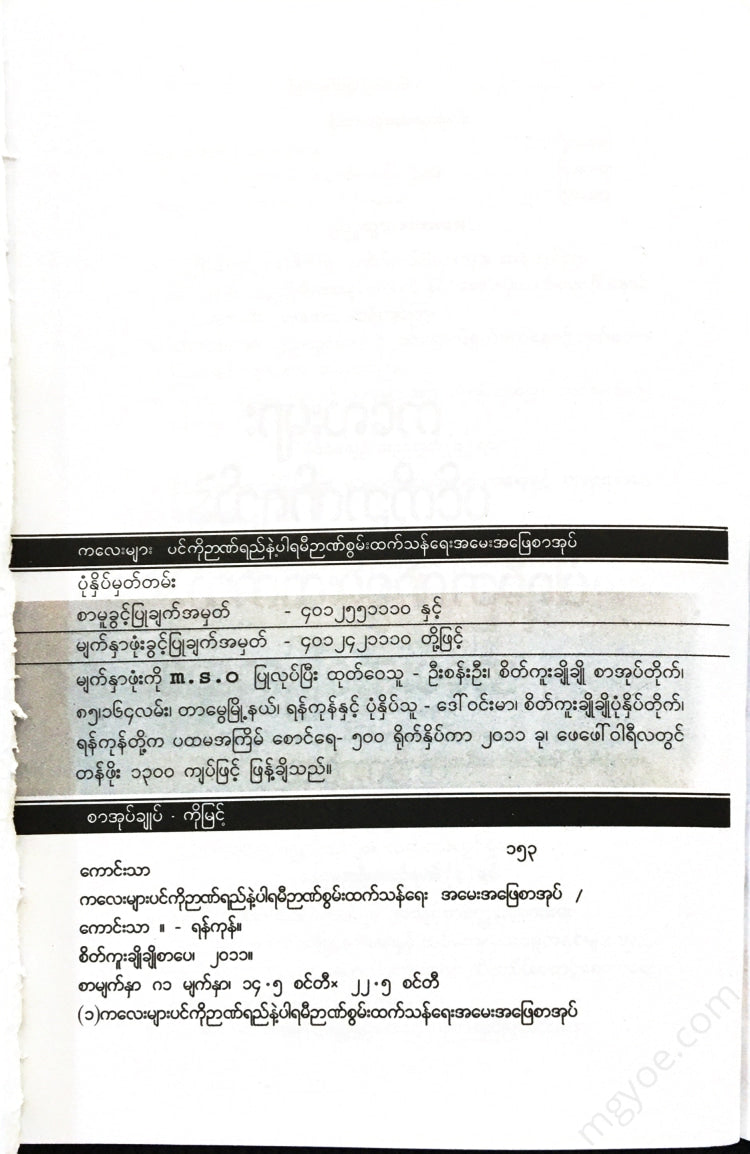စိတ်ကူးချိုချိုစာပေ
Good - A question and answer book on developing children's natural intelligence and giftedness
Good - A question and answer book on developing children's natural intelligence and giftedness
Couldn't load pickup availability
Message for parents
Teach your child facts. They will gain a wealth of knowledge. Teach them to think, to reason, to find the root cause. They will become intelligent and wise. This question and answer book is designed for this purpose. Thinking skills will spread from classrooms to the entire country through such questions and answers.
The questions and answers in this book are designed to develop critical and creative thinking skills. Each page is headlined with a question and the answer is provided below the corresponding picture.
I asked.
Each of these six sub-questions focuses on a higher level of thinking skills. These skills include recalling knowledge, understanding, summarizing, referencing, organizing, predicting, classifying, analyzing, problem solving, and creative expansion.
The questions, answers, and illustrations contain clues to help you answer the questions and follow-up questions. However, some questions can be answered by relating them to other information your child knows about the questions. Suggested answers are provided at the back of the book to guide your child in answering the questions.
Since the time of Socrates, there has been a tradition of asking effective questions to develop a child's intelligence and innate abilities. It is also the most common teaching method used in classrooms today. But asking questions is not as easy as it seems. Now, here are some ways to help your child use the book more effectively.
First, have your child pick up the entire book and flip through it.
Have him look through it. Start by reading the questions and pictures that will grab his attention as he turns the pages. These pages are not meant to be just a one-page exercise. You will become a master of reasoning as you study and think. Each page is completely your own. Then
Back first, front first, middle first, whatever the child chooses. Give the child time to think. Observe for at least ten seconds to a minute before intervening. When parents ask children questions, they often don't give them enough time to think, and instead answer them. How amazing! If necessary, help the child by rereading the question and explaining it. Then give the child more time to think and observe. Don't ask the same question over and over again. Ask another question, and provide a clue to the answer.
* “Why did you say that?”, “Why did you think that?”
"Why?" questions are asked and the answer is expanded upon,
Encourage your child to answer in more detail.
Use the answers at the back of the book as a guide. Sometimes your child will give a different answer, but it will still be the right answer. Remember that the main principle of this book is to “teach your child to think.” It’s not just about giving answers.
The question and answer book is purely educational. But your child may not know this yet. It is fine if your child wants to read only one page. If you can only answer a few questions on one page, leave the rest for another time. The book is not only teaching your child a variety of topics, but it is also teaching you about your child. You, the parent, can spend as much time with your child as possible and have fun answering them together.
1. What is a person who has personally gone into space called?
2. Why can't humans breathe in space?
3. An astronaut looks out the window of his vehicle.
What can you see?
4. What is the opposite of the word 'UP'?
5. Do you know how to do a precision thing? A rocket
Whether it's still climbing or still falling back to earth, what time is right?
How do you count?
6. If you were to go into space yourself, you would only need three things:
Suppose you have to take something with you. What would you take?
Is it twinkling because of the star power?
The stars are billions of miles away from Earth. The stars are not actually twinkling. They appear to be twinkling to the human eye. When we look at the stars, we see them through a thick layer of moving atmosphere. The stars appear to be moving because they are suspended in that atmosphere.
1. What are stars?
2. Can you see the stars during the day?
3. Is the moon a star?
4. Is the moon visible at the same time every night?
5. Can you see the moon during the day? Have you ever seen it?
Is it?
6. When you see a comet, pray that your wishes are fulfilled.
There are people. What would you like to pray for if you saw a comet?
Where do the stars go during the day?
The stars never run away. They remain in their place even during the day. But the light from the sun is so bright that the sun's rays cover the stars and we can't see them. When the sun sets and the night falls, we can only see the specks of starlight again.
1. Under natural daylight
When you shine a flashlight on it, can you see the light from the flashlight?
2. What happens when you shine a flashlight into a dark room?
3. Have you ever looked up at the night sky when you were in a rural area far from the city?
4. Why do we see more stars when we look up at the night sky from a field in the countryside than when we look up at the sky in the city?
5. At night, when you look up at the sky from your yard or garden, what else do you see besides the stars?
6. As much as you can think of, what else is similar to a star?
Tell me.
Why do we have day and night?
All our light comes from the sun. The earth, which orbits the sun, also rotates on its axis. One complete revolution on its axis is called a day (24 hours). As the earth rotates, the side facing the sun experiences day, and the side facing away from it experiences night. Only one side of the earth can rotate toward the sun at a time. Because the side of the earth you are on is facing the sun, your side experiences day, while the side facing away from you experiences night.
1. What do we call the part of the day when we first see the sun?
2. Some people, unlike most people, sleep during the day, wake up at sunset, work all night, and return home early in the morning. What do you call such people?
3. Do you know any animals that don't go to bed at night?
4. What are some things you like to do at night?
5. Would you like to work at night? If you do, why? If you don't, why?
6. If your father or mother works all night
If so, what changes might occur in your home?
